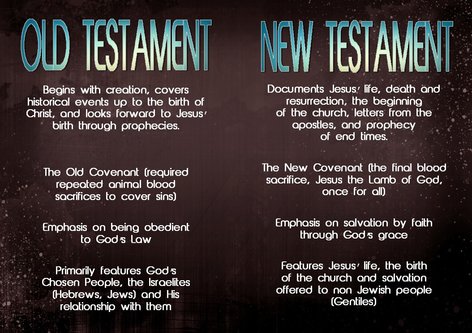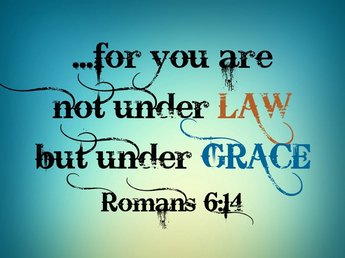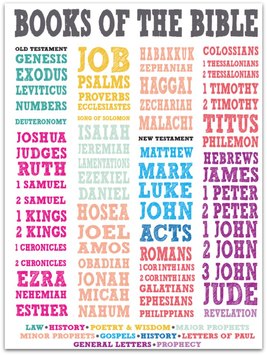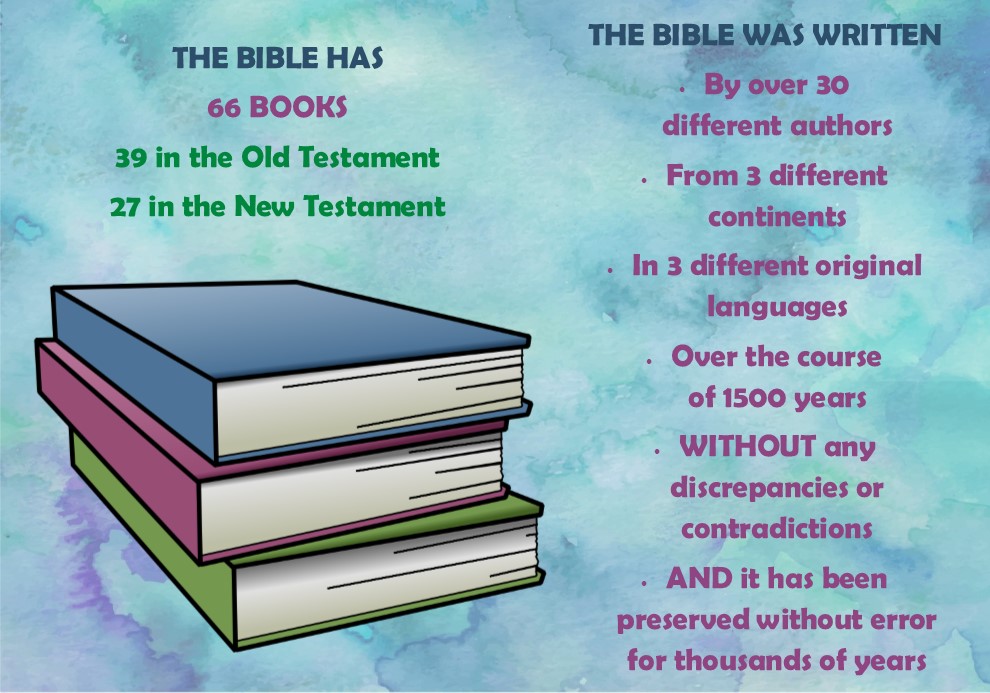
The Old Testament centers itself around the Old Covenant of works or the law made between God and mankind, which was given through God’s servant Moses (read the story of Moses receiving the Law here in Exodus 24). The word “testament” is actually interchangeable with the word “covenant.” A covenant is an agreement between two parties which is based on faith and a blood sacrifice. A covenant is a vow, and is stronger than a contract—for example, in the old testament, God’s law required the blood sacrifice of animals to pay for sins, or the breaking of God’s law. These animal sacrifices, however, were insufficient and had to be offered over and over again, as a reminder of the sins of the people, according to Hebrews 10:1-4. So, what is the purpose of this “Old Covenant?” The Apostle Paul said in Galatians 3:24 that this Old Covenant was like a school teacher or guardian that kept his students in line and taught them. God uses this Old Covenant of rules and laws to show us that we cannot live up to God’s righteousness in our own power. Over and over the people of the Old Testament failed to live up to God’s laws and failed to keep His commandments, and so proved that sinful man could never by his works reach God’s righteousness. So then, if mankind can’t keep the law, what is the hope to ever be right in God’s eyes?
The answer is the New Testament which centers around a New Covenant. This “New Covenant”—we call it grace—is unconditional in that God says, "I will forgive you and I will see you as righteous even though you cannot keep My law (See Ephesians 2:8-9).” How can this be possible? Because the New Covenant comes through the sacrificial death of JESUS, the only one who ever lived that could and did keep all of the laws of God. He fulfilled the Law (Matthew 5:17), and died once for all as the final blood sacrifice--the Lamb of God (Hebrews 10:10). Jesus' fulfillment of the Law made the Old Testament obsolete, and replaced it with the new covenant of grace (Hebrews 8:13). He lived as a man but without sin, and through His sinless life, his death, and his resurrection from the dead, we can enter into this New Covenant relationship with God. We can be covered by the righteousness of Jesus and we can be seen as righteous before God even though we fail to keep God’s laws (2 Corinthians 5:21). That’s called grace!
The answer is the New Testament which centers around a New Covenant. This “New Covenant”—we call it grace—is unconditional in that God says, "I will forgive you and I will see you as righteous even though you cannot keep My law (See Ephesians 2:8-9).” How can this be possible? Because the New Covenant comes through the sacrificial death of JESUS, the only one who ever lived that could and did keep all of the laws of God. He fulfilled the Law (Matthew 5:17), and died once for all as the final blood sacrifice--the Lamb of God (Hebrews 10:10). Jesus' fulfillment of the Law made the Old Testament obsolete, and replaced it with the new covenant of grace (Hebrews 8:13). He lived as a man but without sin, and through His sinless life, his death, and his resurrection from the dead, we can enter into this New Covenant relationship with God. We can be covered by the righteousness of Jesus and we can be seen as righteous before God even though we fail to keep God’s laws (2 Corinthians 5:21). That’s called grace!



 RSS Feed
RSS Feed